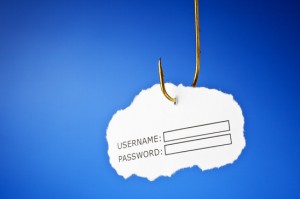The Internet is a great way to stay on top of breaking news, communicate with friends and family and to stay entertained with games and streaming video. But while you're off having tons of fun taking part in online activities, don't forget about the importance of taking internet security precautions to avoid Internet pitfalls that could put your computer security at risk.
Here is a checklist of of things you can do to increase your internet security measures:
- Don't share passwords. No matter how much you might be tempted to give someone else your password, avoid doing so. Giving your password away is like giving away the keys to your car - not something most people would do in most circumstances.
- Use a complicated password. Most websites require a password in order to log in and using a password that's difficult to guess makes it harder for hackers to infiltrate your account. Be sure to use a combination of uppercase and lowercase letters, numbers and special characters when assigning a password. For more security, use 8 or more characters.
- Avoid using public terminals to access sensitive websites. Public terminals are great if you just want to quickly browse the internet, but if you need to pay bills online or access personal Emails you'd be better off using a private computer so unauthorized people can't access your accounts after you've finished your business.
- Be sure to log out when using shared computers. If you must use a public or a shared computer terminal, always be sure to log out of any website that you've logged in to. This way the next person using the machine can't automatically login using your credentials.
- Be careful about opening Emails or attachments from "phishy" looking senders. These Emails and attachments could contain malware, viruses and other malicious code that can be used to extract key data from your computer and put you at risk for computer damage, financial loss or even identity theft. Many companies will not send out Emails asking for sensitive information such as your Username, Password or Credit card numbers, so if you get a suspicious Email asking for this data, chances are it's a hoax. If you are unsure of whether or not an Email is legitimate, don't put yourself at risk by opening or clicking anything contained in it.
- Monitor what you share at social networking websites. Giving away too much information about your whereabouts at social networking websites such as Facebook and Foursquare could alert malcontents that you're away from home and give them an opportunity to break into your home.
- Protect your computer using Saas security services such as Email security, URL content filtering, Image scanning and laptop/mobile security. These services allow you to seamlessly scan for threats remotely in a cloud environment. If a website or URL is found to contain viruses or other malicious code, the software will prevent you from accessing the site. In the case of Email for your own domain, the message will be quarantined so it won't be delivered to you or your personnel. Thousands of domains are registered on a daily basis and not all of them have good intentions for website visitors, so using a URL content filtering solution can stop you from stepping foot on an internet landmine.
Internet security isn't something that people think about until it's too late. Don't let this be your fate! By following some simple internet security basic practices you can avoid the headaches that a internet security breach can cause.
I hope that this checklist will help you become more diligent about the internet security measures that you're currently using to keep yourself safe online.







